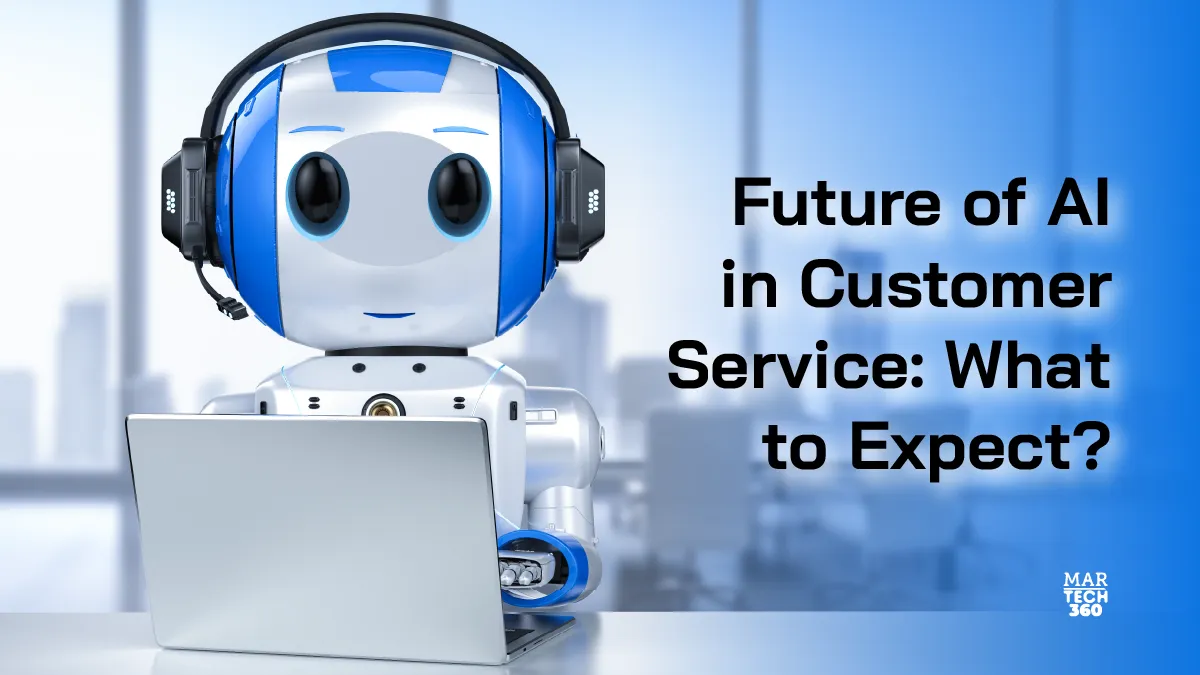Customer service refers to the support and advice offered by a company to its customers before and after they purchase or use a product. This encompasses troubleshooting problems, responding to inquiries, suggesting products, and providing immediate assistance. Great customer service builds brand loyalty and recognition, giving businesses a competitive advantage. Artificial Intelligence (AI) is revolutionizing customer service by automating responses and personalizing interactions. This leads to improved efficiency and a better overall customer experience.
Rise of AI in Customer Service
Customer service plays a crucial role in ensuring customer satisfaction and loyalty, serving as the frontline of business interactions. With the rise of AI, the way businesses engage with their clients is changing dramatically. Businesses are increasingly adopting AI technologies, such as chatbots and virtual assistants. The future of AI in customer service is promising, with projections indicating that by 2025, 80% of customer service organizations will adopt generative AI to improve agent productivity and customer experience.
How is AI Transforming Customer Service?
AI is changing customer service. It is reshaping business-client interactions and improving the customer experience. This shift is largely driven by the need for faster response times and more efficient handling of customer inquiries. AI technologies are streamlining customer service. They automate routine inquiries, provide 24/7 support, and personalize interactions based on customer data.
Automating Routine Tasks – AI improves customer service by automating tasks like order tracking, and account management. This automation lets human agents focus on more complex issues that require empathy and understanding, enhancing operational efficiency and service quality. For instance, AI-powered chatbots can manage numerous inquiries at once, reducing customer wait times.
Enhancing Customer Interactions – AI technology significantly enhances customer interactions. AI-powered chatbots and virtual assistants handle a range of queries, from simple FAQs to complex issues. These tools analyze past interactions and use machine learning to predict customer needs, allowing for a tailored approach. Studies show that AI-based conversational assistants can increase productivity by 14% for support agents.
Personalization Through AI – Delivering a personalized experience is key to good customer service. Customers expect interactions tailored to their preferences and behaviors. By using data from past interactions, companies can create tailored responses. These will resonate with individual customers. For example, AI systems can analyze a customer’s purchase history and browsing behavior. They can then recommend relevant products during support interactions. This personalization improves the customer experience. It boosts loyalty and deepens brand-client connections. This leads to stronger relationships and higher satisfaction.
Streamlining Communication – AI improves communication between customers and support teams. It does this by connecting to back-end systems like Customer Relationship Management (CRM) platforms. This lets agents quickly access important information, helping them provide tailored responses and personalized recommendations. AI can also prioritize issues using sentiment analysis, automatically directing frustrated customers to live agents for immediate help. This ensures urgent problems are fixed quickly. It reduces the risk of losing unhappy customers. AI creates a better support experience by making communication more efficient. This boosts customer satisfaction and loyalty.
Challenges and Considerations
The use of AI in customer service presents numerous advantages, but it also poses significant challenges for businesses. One of the primary concerns is over-automation, which can lead to a lack of personalization. AI can handle routine inquiries efficiently. But, for complex issues, customers often prefer human interaction. They seek empathy and nuanced understanding. Striking the right balance between automated responses and personal engagement is crucial.
Another challenge is interpreting customer intent. AI systems may struggle to understand the context or emotional nuances behind customer queries. This leads to generic responses that fail to address specific needs. This, in turn, can result in frustration and dissatisfaction, as customers may feel unheard or undervalued.
Data privacy and security are also critical considerations. As AI systems analyze vast customer data, businesses must comply with regulations. They must also protect sensitive information from breaches. Failure to do so can damage a company’s reputation and erode customer trust.
Additionally, the initial costs and complexities of implementing AI solutions can be daunting for many organizations. AI tools must work seamlessly with existing systems. This requires careful planning and resources, which may be a barrier for smaller businesses.
Continuous monitoring and training of AI systems are essential to maintain their effectiveness. AI models must be regularly updated to adapt to changing customer expectations and behaviors. This requires continuous investment in training and development.
In summary, AI could revolutionize customer service. It can boost efficiency and responsiveness. However, businesses must carefully consider these challenges. By addressing issues related to personalization, data security, integration costs, and ongoing training, companies can leverage AI effectively while maintaining high standards of customer care.
Also Read: Why AI Sales Automation is a Must for Modern Sales Teams
Recent Developments
Several companies are increasingly using AI in customer service:
DevRev’s Turing Chatbot: This chatbot automates responses to common questions, freeing human agents to handle more complex issues. It accesses knowledge bases for accurate information and can create support tickets when needed.
Capital One’s Eno Virtual Assistant: Eno monitors accounts in real time, sending alerts for suspicious activities and offering personalized recommendations based on spending habits.
IBM’s Generative AI Initiatives: IBM is focusing on generative AI to improve predictive analytics in customer service, enabling proactive engagement with customers based on their behavior.
These developments reflect a broader trend where companies are increasingly leveraging AI systems to improve operational efficiency and deliver a more personalized experience in their customer service interactions.
Can AI replace humans in customer service completely?
As organizations increasingly adopt AI technologies, a pressing question arises: Can AI replace humans in customer service completely? The answer is nuanced. Although AI can handle basic inquiries and repetitive tasks, such as tracking orders or resetting passwords, it lacks the emotional intelligence and empathy provided by human agents.
Many experts agree that while AI will automate many aspects of customer service, it will not fully replace human roles in the near future. Instead, the future of AI in customer service will involve a hybrid model. AI systems can handle routine inquiries while human agents can focus on more complex issues that require emotional intelligence and personal touch. This balance ensures that customers receive quick responses to simple questions while still having access to human support when needed.
Moreover, as AI continues to evolve, organizations must invest in training their human agents to work alongside these technologies effectively. AI-generated insights can empower agents. They can then make informed decisions and deliver exceptional service.
Future Trends in AI-powered Customer Service
Looking ahead, several trends are expected to shape the future of AI in customer service:
Increased Adoption of Conversational AI: Businesses will invest more in conversational AI technologies that enable natural interactions between customers and machines.
Enhanced Predictive Capabilities: Future AI tools will improve predictive analytics. They will better anticipate customer needs.
Integration Across Channels: AI will be integrated across various communication channels like social media, email, and live chat. This will create a seamless experience for customers.
Emphasis on Emotional Intelligence: Advances in sentiment analysis will help AI systems improve interactions. They can recognize and respond to customer emotions.
Focus on Self-service Solutions: There will be a greater emphasis on AI-powered self-service options, enabling customers to find answers on their own while still having access to human support when needed.
Conclusion
Integrating AI into customer service is a big step forward for how businesses interact with clients. Companies can boost customer satisfaction and efficiency by using AI chatbots, personalizing experiences with data, and using machine learning. The future of AI in customer service involves adding a human touch to AI to meet the evolving customer needs.


Comments are closed.